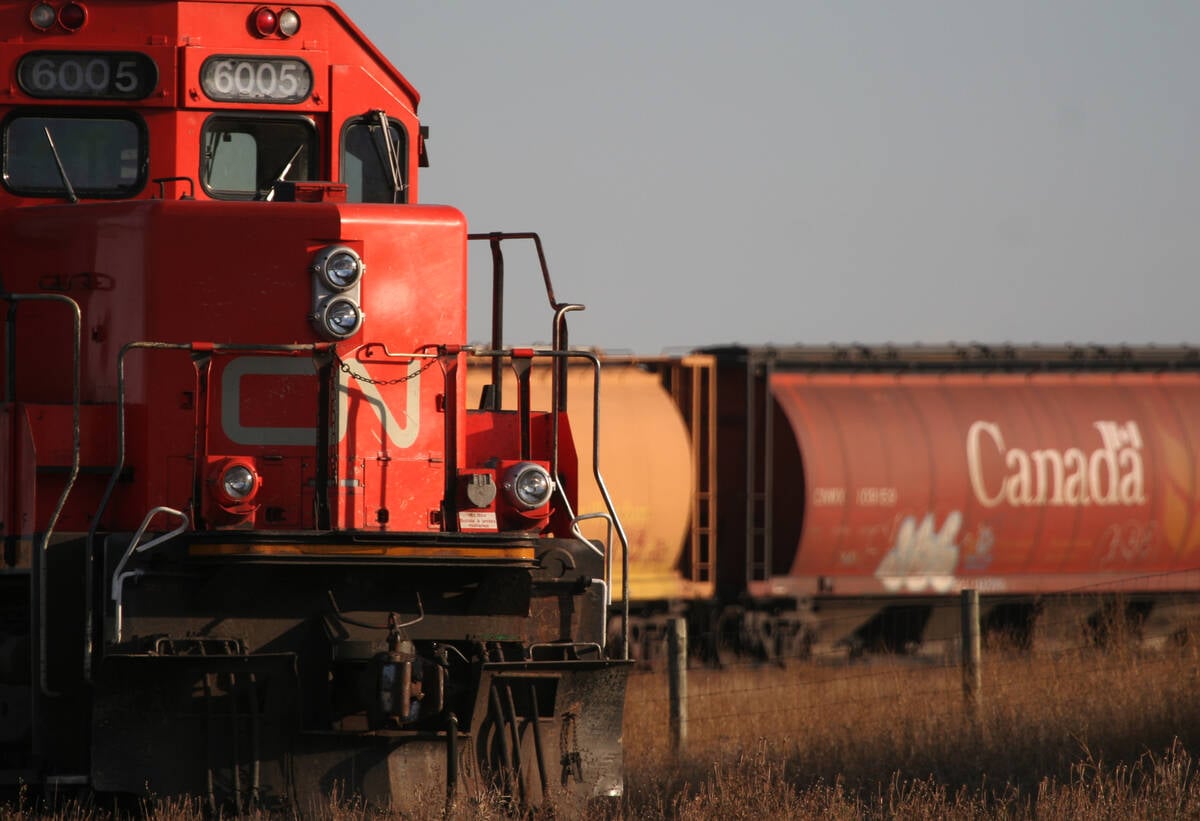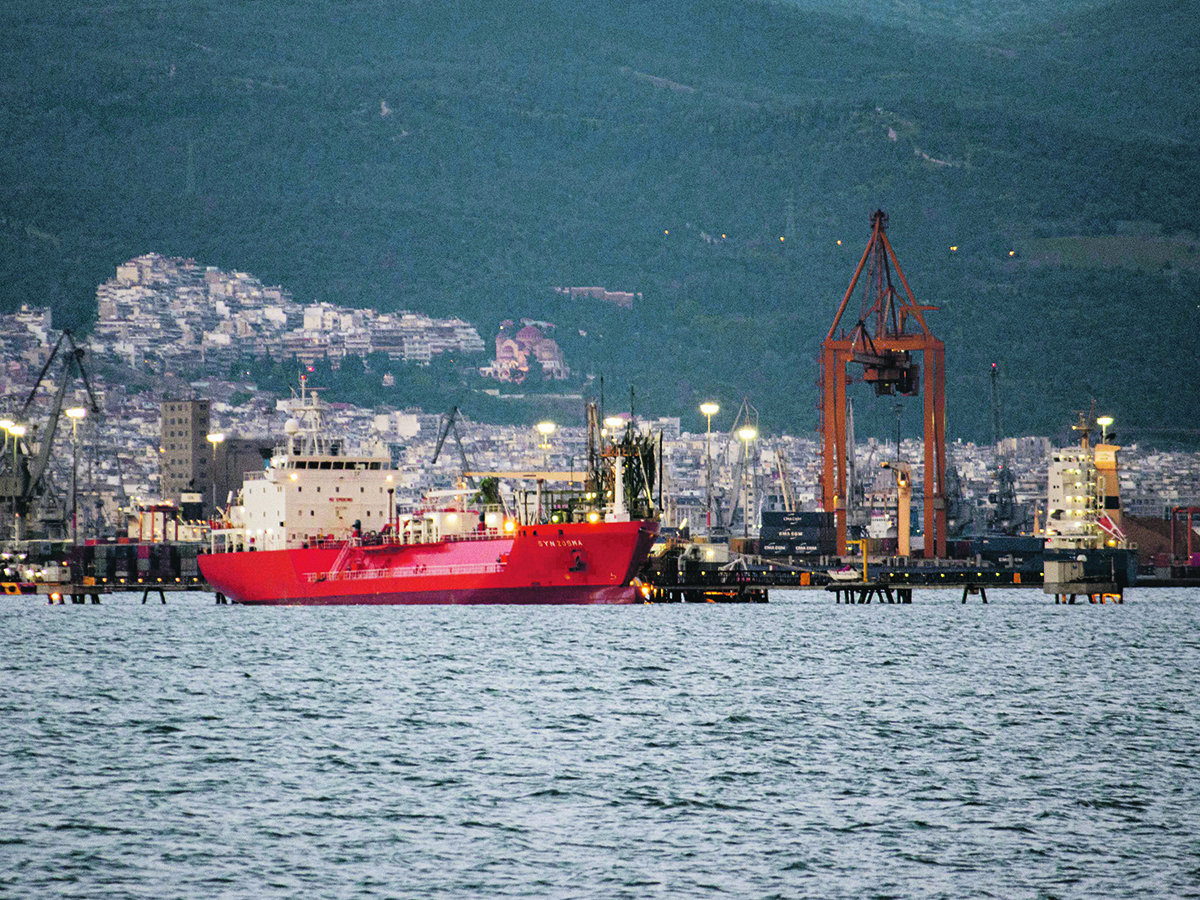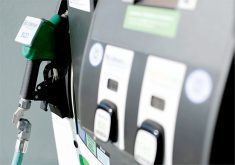Shipbrokers say the cost of the European Union’s new emission reduction efforts will likely be passed on to shippers
LONDON, U.K. (Reuters) — European Union marine fuel rules, effective from Jan. 1 as part of efforts to cut emissions, will raise shipping costs, although firms with vessels that can run on alternative fuels, such as biodiesel and liquid natural gas, will benefit, two shipbrokers said.
The policy is the second major EU regulation focused on cutting the shipping industry’s carbon emissions in as many years. Shipping transports more than 80 per cent of all traded goods and causes nearly three per cent of greenhouse gas emissions.
The FuelEU Maritime regulation requires commercial ships above 5,000 gross tonnage operating in EU ports to cut emissions from marine fuels, also called bunker fuels, or pay penalties.
Read Also

Working groups established to address challenges in the containerized and bulk movement of commodities
CN is working with the pulse and special crops sector on resolving challenges in shipping those commodities.
Biofuel and other alternative fuels for ships are in short supply, and there is competition from aviation and other sectors. That means shipping companies’ costs will rise, and ultimately, the increase will be passed onto consumers and businesses, shipbrokers said.
The new policy follows the EU’s inclusion of shipping in its Emissions Trading System (ETS) in 2024 that means ships pay for their emissions made on voyages that include EU ports.
“It is important that we understand that shipping decarbonization will be inflationary, as freight rates will be impacted,” said Kenneth Tveter, head of green transition at shipbroker Clarksons.
Mattia Ferracchiato, head of carbon markets at shipbroker BRS, also said freight rates would increase as ships either pay a premium for greener fuels or a penalty for failing to comply.
FuelEU penalties could equal three per cent of the total freight cost for a tanker carrying around 70,000 tonnes of crude or fuel oil between the U.S. Gulf and Rotterdam, calculations from BRS show.
A tonne of very low sulphur (0.5 per cent) marine fuel in Rotterdam cost US$522 Jan. 3, according to data from marine fuel platform ZeroNorth. Biodiesel-blended very low sulphur (0.5 per cent) marine fuel in Rotterdam, meanwhile, cost $709 per ton, according to bunker intelligence platform Engine.
Under the regulation, eligible ships must reduce bunker fuel emissions by two per cent each year between 2025-29 from an emissions baseline of 91.16 grams of carbon dioxide equivalent, while the reduction target rises every five years up to 80 per cent in 2050.
Switching to biofuel-blended bunker fuel and liquefied natural gas (LNG) will be among the most popular compliance options, said Clarksons’ Tveter.
But there were still drawbacks, he said.
“Biofuel supply is limited and competition will be fierce, especially from aviation.”
Aviation, unlike shipping, was used to having to pay up for “a premium refined product,” he added.
Shipping companies with vessels that can run on alternative fuels will benefit, Tveter added. Biodiesel-blended fuel oil and LNG are the most readily available alternative marine fuels.
Marine consultancy DNV said the preferred option could be a pooling system whereby ships that reduce emissions below the threshold of 91.16 grams of CO2 equivalent create a surplus, allowing multiple ships to comply with the FuelEU regulation.
Companies with many vessels could secure a compliance surplus on selected vessels, most likely by switching to biofuel, then using pooling to make the whole fleet compliant.
Other firms could also buy or sell allowances from other shipping companies.
A single vessel running on LNG can make four other same-sized ships compliant with the FuelEU regulation, according to the European Commission.















